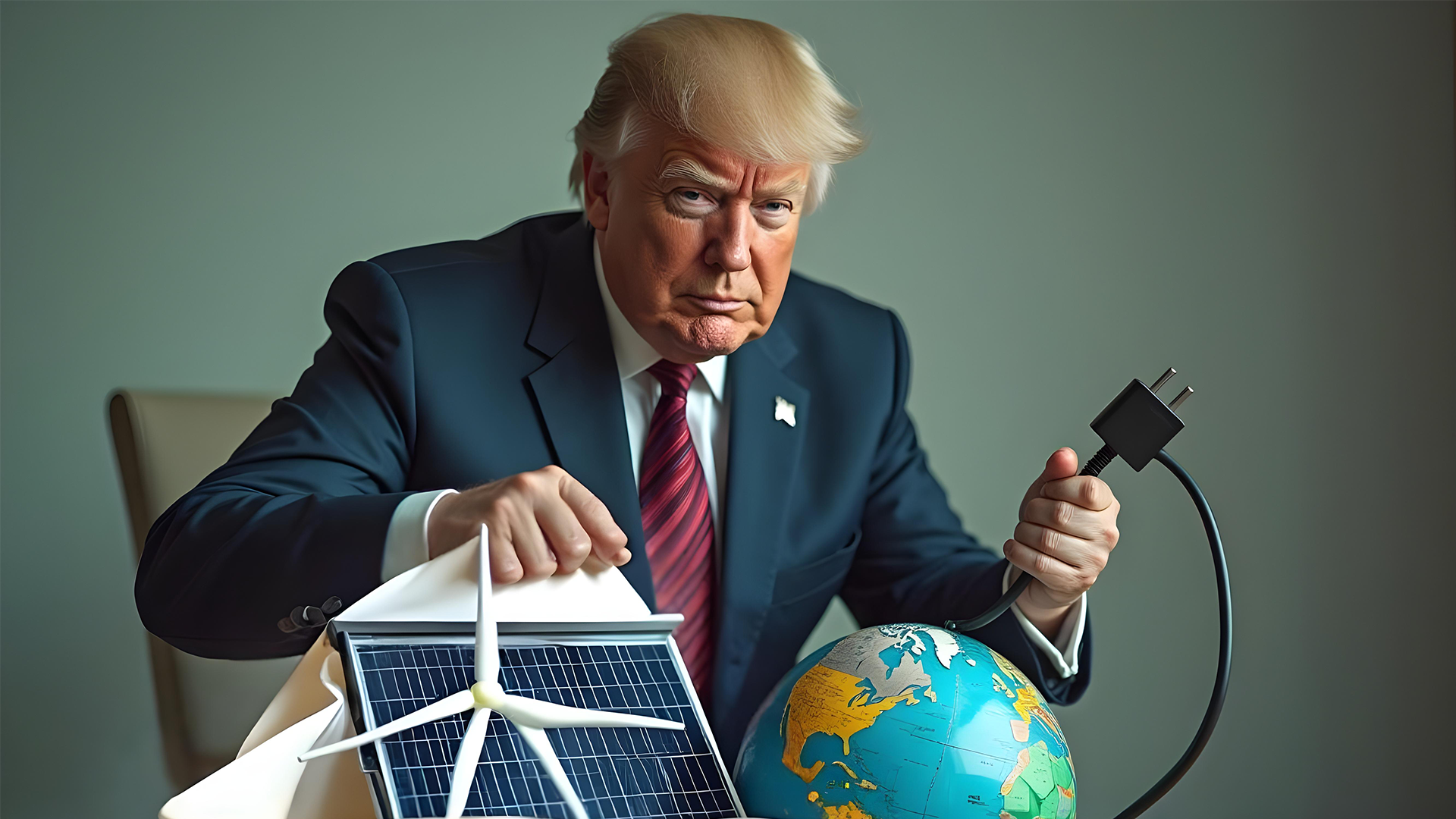- “Europe could be the collateral victim of the disputes between the Chinese and American economies,” according the expert in International Strategy from Foro Industria y Energía, Nuria G. Rabanal.
- The position of the United States regarding the decarbonization process and the Paris Agreement could serve as an excuse for other countries to slow down their processes, leaving Europe with a green industrial agenda in isolation.
- Support for clean energies could lead to increased dependence of the United States on countries like China.
Although it is still early to determine the exact effects of Donald Trump‘s new mandate on the industry and energy sectors, both in the United States and globally, his electoral campaign and the actions taken during his previous term already provide some insights.
In general terms, Trump has openly expressed two specific goals: reducing electricity prices and inflation, while ensuring affordable energy supply so that it does not affect industrial production costs. In this regard, changes in international commitments against climate change are expected, along with a focus on maintaining and enhancing fossil fuel and nuclear energy production. Regarding industry, the approach will likely remain under the “America First” idea, which has been upheld by both the previous Trump administration and the Biden-Harris administration.
Some of the policies that are expected to be implemented from an energy perspective include the U.S. withdrawal from the Paris Agreement, increased oil drilling and fracking, reducing bureaucracy in the gas and oil sectors, halting the development of offshore wind energy, canceling the moratorium on new liquefied natural gas (LNG) terminals, and boosting nuclear energy.
“The U.S. withdrawal from the Paris Agreement allows other countries to slow down their own decarbonization and blame the United States”

Nuria G. Rabanal, International Strategy expert at Foro Industria y Energía
On this last point, Nuria G. Rabanal, International Strategy expert at Foro Industria y Energía and director of the Security and Defense Chair at the University of León, points out that “the commitment to nuclear energy is linked to the need to guarantee energy independence for the United States, that is, to strengthen the energy diversification that the American economy is likely already anticipating may decline in the coming years, primarily for one reason: any support for clean energy policies increases the degree of external dependence,” she explains. “Renewable energy and electric car batteries depend on the importation of raw materials for which the United States is not a dominant power, whereas countries like China and Russia are,” adds the expert.
Regarding the Paris Agreement, Rabanal notes, “Beyond that decision, we must assess whether the Paris Agreement is having the global impact that was expected. Donald Trump does not support this agreement, but we must take into account his personality: his success is based on controversy, not political diplomacy. In reality, the long-term implementation of the Paris Agreement in the United States would require structural changes that the American economy, accustomed to fossil fuel consumption, may not want to undertake. It is not easy to convince certain sectors of the American economy to abandon the most abundant resources they have in favor of greater climate sustainability.”
In any case, if the United States withdraws from the Paris Agreement again – and all indications suggest that it will – this will shape the negotiations at COP 29 to reduce global greenhouse gas emissions, as it allows other countries to slow down their own decarbonization and blame the United States instead of their own lack of ambition. And here, Europe could be left alone, facing the loss of industrial competitiveness due to pursuing a green agenda in isolation.
Repercussions on the European industry
U.S. industrial policy will likely continue to follow the “America First” line. During his previous term and electoral campaign, Trump made a clear commitment to promoting and protecting heavy industry. “This industry is key to employment stability,” explains Rabanal, “it includes key sectors such as automotive, energy infrastructure construction, or defense, in which the United States has a significant expenditure budget,” she adds. The tariff policy is also expected to continue, which will directly affect Europe as it has so far, with the main focus on China.
“Europe could be the collateral victim of these disputes between the two major economies,” explains Nuria G. Rabanal. “On the other hand, we must consider that this real economy is accompanied by a financial economy cycle, where U.S. economic policy and the Federal Reserve’s interest rates will also influence. This may justify why the European Central Bank has lowered interest rates to increase competitiveness for European investments and companies in relation to American ones.”
Furthermore, “an investment policy is likely to be developed within the ‘Investing in America’ program, which will be accompanied by higher interest rates than those in the European Union, to increase the profitability of foreign capital movements and make it more profitable for American capital to keep investments within the United States,” explains Rabanal. Another element Rabanal highlights is the influence of exchange rates, which “may affect markets and the competitiveness of European products.”
In short, the expert emphasizes that “we have returned to protectionism, showing that there is a desire to avoid excessive dependence on fluctuations in the international scenario on macroeconomic variables as important as inflation, employment, and GDP.”
The future of the Inflation Reduction Act (IRA)
Trump will not be able to carry out all the policies without the support of Congress, especially those affecting the IRA. Dismantling the IRA would hinder investments in renewable energy that have been underway since mid-2022. Moreover, most of the investment and job growth driven by Joe Biden’s push has taken place in Republican territories, specifically in states and Congressional districts represented by Republicans. Any change to the IRA would also have repercussions in these Republican territories, potentially facing political resistance from his own party.
However, the Trump administration can take measures related to bureaucracy, specifically to halt or obstruct the provision of tax credits under the IRA through the Department of the Treasury, which could suspend or delay the implementation of the rules determining how tax credits are calculated and disbursed. Additionally, through federal agencies, Trump could avoid issuing important guidelines or regulations, drastically changing how tax incentives are structured.
In conclusion, this reality on the ground will present an obstacle for Trump as, despite political control of Congress, he will likely face resistance from his own party to maintain the IRA in full or in part, particularly to save industrial jobs. Moreover, if the goal of the United States is to strengthen its industry against China, it will be crucial for Trump to maintain the country’s competitiveness, especially that of American companies aligned with the IRA.
Regulatory stability will be key to ensuring that investments already underway are not disrupted, which is why it is likely that Trump will adopt a pragmatic policy to avoid damaging the industrial fabric and hindering innovation.

